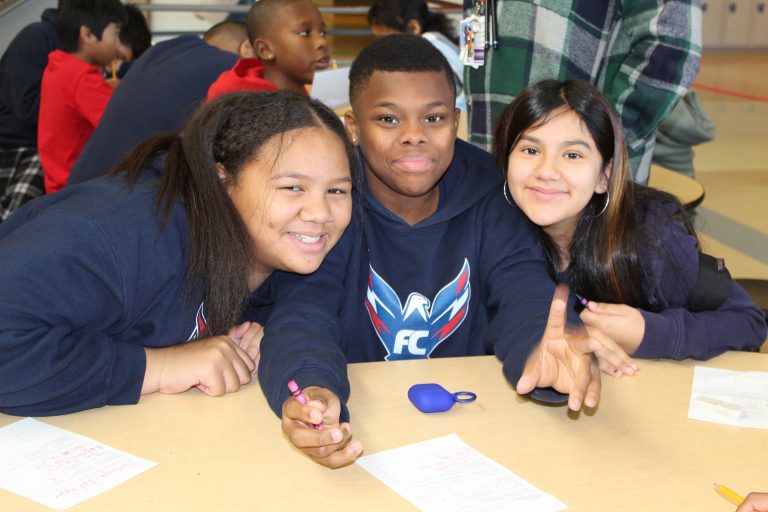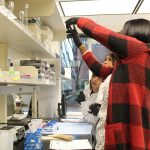
If At First You Don’t Succeed: Project Launch Day at First Creek Middle School
First Creek Middle School is TAF’s newest TransformED partner, and at their recent project launch, the heat was on … literally!
The 6th graders at First Creek will spend the next few months learning about thermal energy in Math, ELA, Science, and Social Studies. All of their learning will work to answer the community-centered question: How can we harness energy to help our community? Early next year, scholars will develop thermal containers for an exhibition as part of their project-based learning cycle.
But before all of that, these students had to go through the trial and error of launch day. It is the first step in their project-cycle journey. Students were both excited and nervous with anticipation in the lunchroom that morning. The students went through 6 stations where they were introduced to thermal energy, learned about its uses in their community, and got insight into how they can help their community with thermal energy.
One rather unique experience for students passing through the stations was the ability to fail. Though hesitant to try and fail at first, the day drew out their curiosity and frustration as they had to make predictions about new science concepts and build prototypes that didn’t always work.
Let’s make the rounds of project launch day at First Creek: 10 minutes per station. That’s right, students at First Creek did all of this in under 90 minutes!
Station 1: Energy Demos

The students approached this station knowing that atoms move faster as matter gets hotter. That made it the perfect time to start making some predictions. Would dye spread faster in hot or cold water? What would happen to a balloon introduced to heat from a hot plate?
After making their predictions, they observed the answers then worked together to explain why what they observed happened. Whether or not they predicted correctly, they learned by seeing thermal energy in practice.
Station 2: The Protype Quiz
Can you guess what each of these prototypes did/do?
(Pst…Hover each prototype to check your guesses)
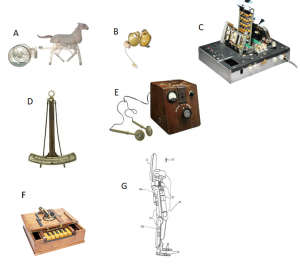
480 BC - Take people from place to place

1982 Replacement Heart
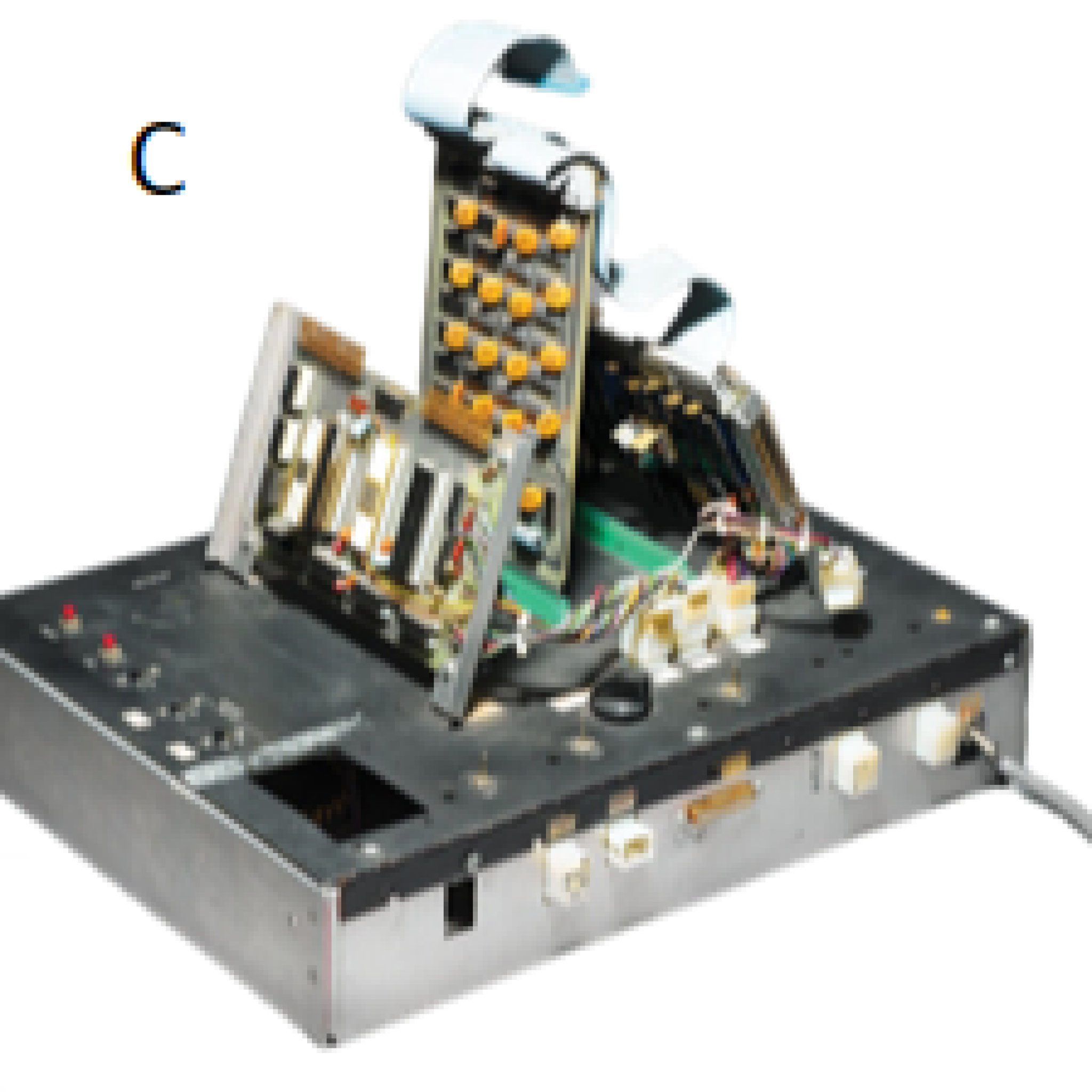
1976 Atari Video Computer System

1876 Thermometer
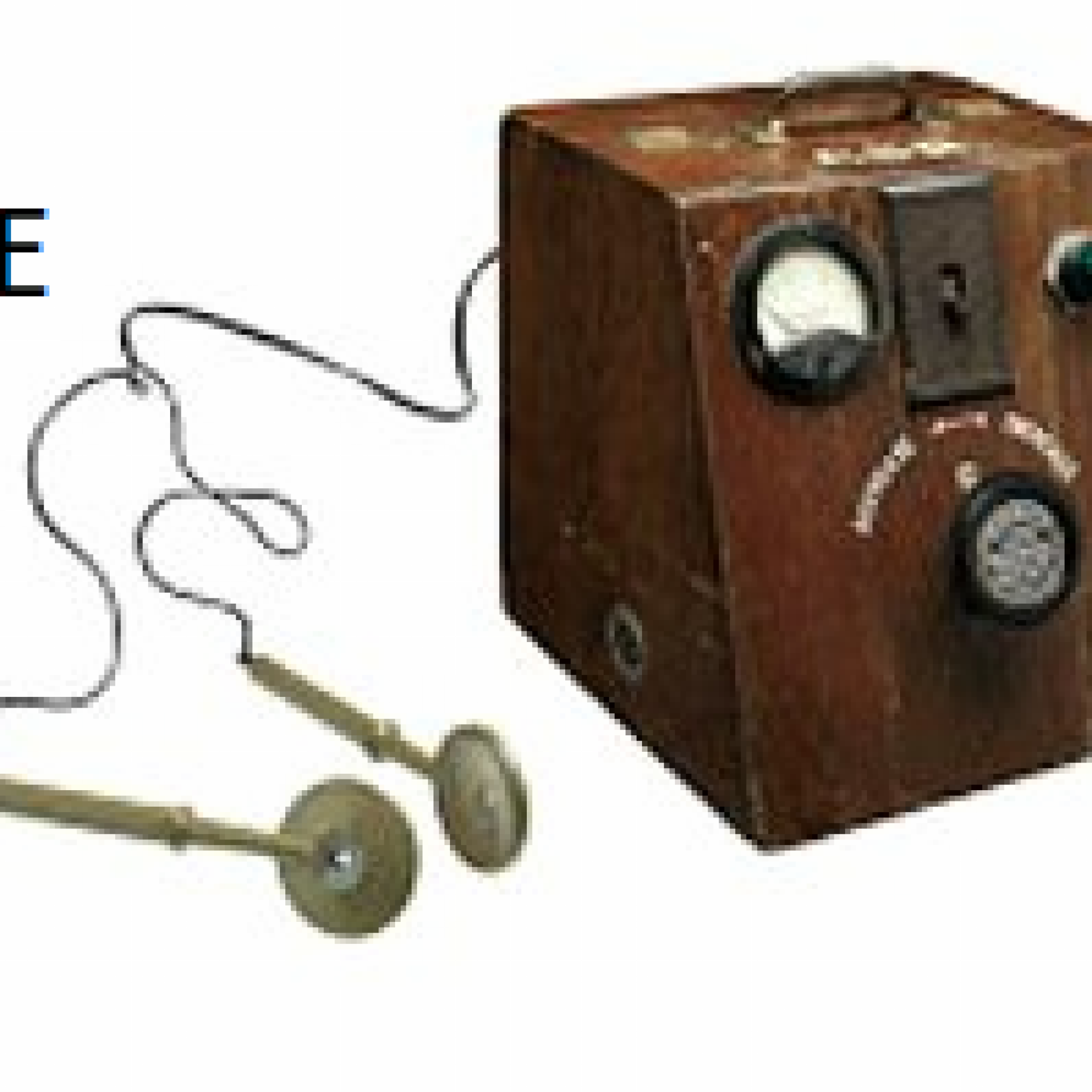
1947 Shocks the Heart Back into Beating

1868 Type Letters to create Documents
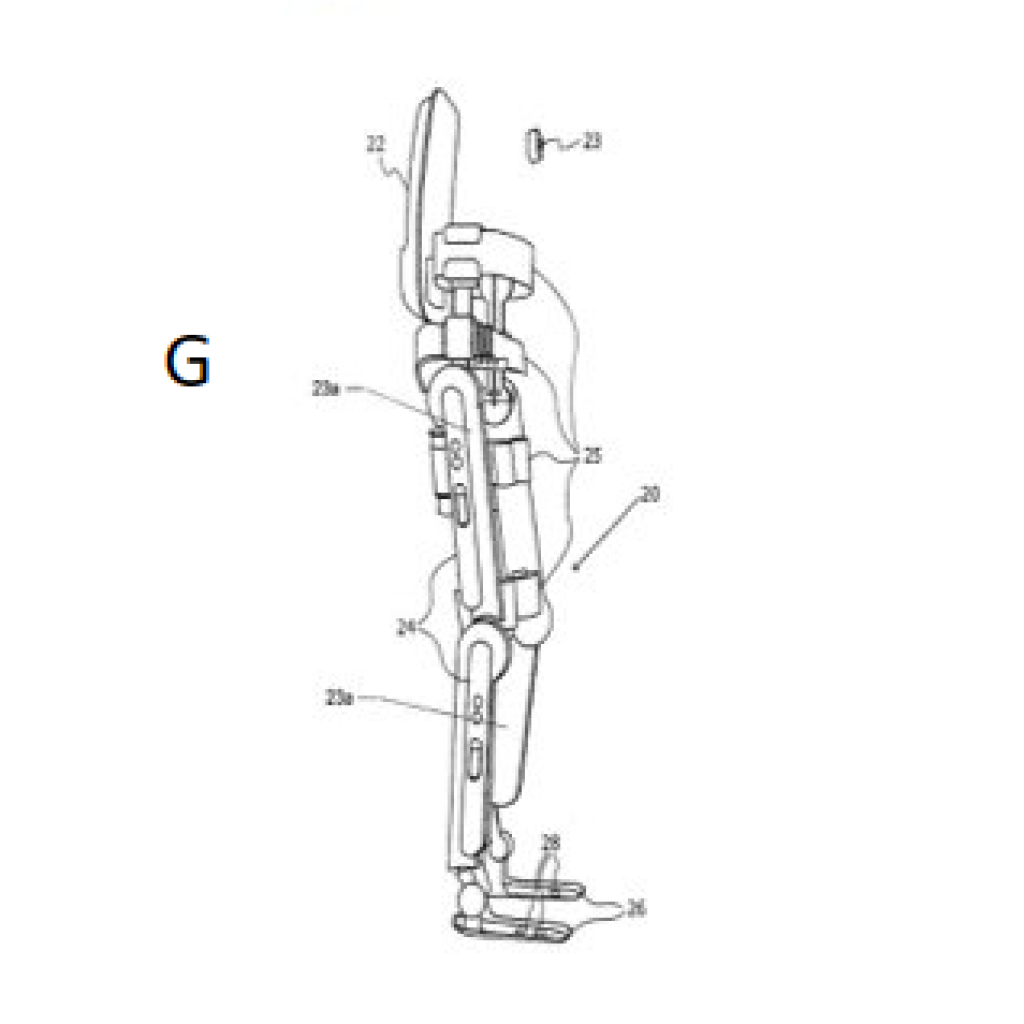
2014 Help People Walk
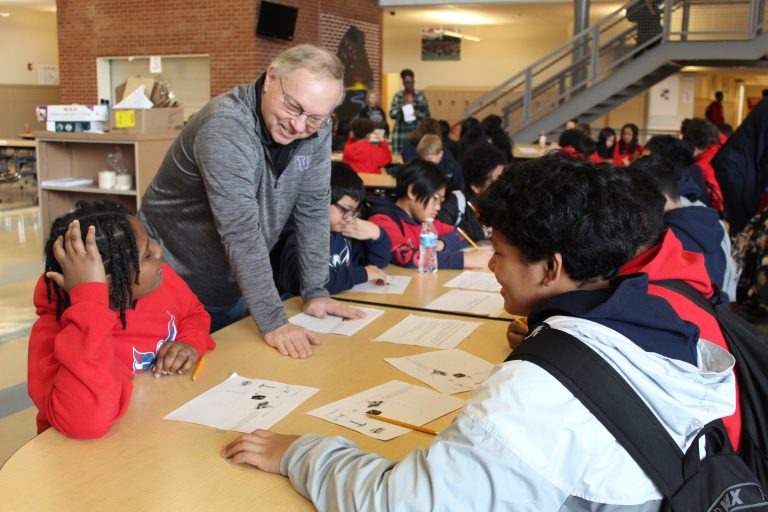
First Creek students had to use the power of observation to work through the prototype quiz. And in the process, they had to face their fears of being wrong; some of these are pretty hard. They may not have started the day able to recognize a 1947 defibrillator or 1982 replacement heart, but they can now.
Station 3: Build Your Own Prototype
The challenge of this station was to get into groups, write a message on paper, and use a cup, foil, and straws to seal the message. A successful prototype would keep the message completely dry after submerging it in a bucket of water. Those who managed to keep their message dry added their names to the Hall of Fame. Very few students made it, but they all brought creative ingenuity to the problem. Below is a student eager to try again after his first message got soaked and a student whose message stayed dry.
Station 5: Thermal Energy Representation Through Art
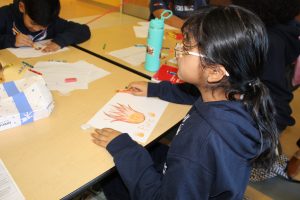
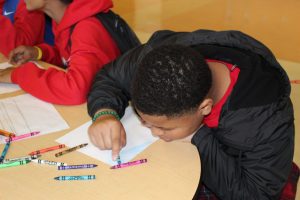
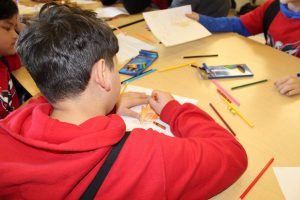
Later, students got crayons, a sheet of paper, and the open-ended question “What does thermal energy look like to you?” It wasn’t easy to visualize a concept they just started learning about, but our students managed to bring the heat on their sheets.
Station 6: Community Member Exploration


Part of understanding how their community uses thermal energy was getting to question thermal energy professionals about their work. Tacoma Power was on site exhibiting their work and taking student questions. Scholars learned where the power to use their TVs and video games comes from and how insultation keeps heat inside their homes.
Yay, you made it through launch day.
(time to head back to class)
First Creek’s 6th graders had trials, errors, and successes at their project launch. That ability to try and try again is one way that project based learning develops our students into courageous, 21st century problem solvers. They will certainly need it on the road to their exhibition next year. We’ll check in with them again soon.
